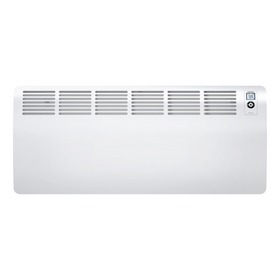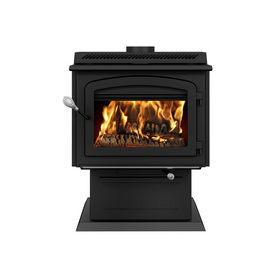
Home Organization Tips from a Permaculture Expert
Last Updated: Mar 28, 2025Permaculture is a set of design principles centered on mimicking nature and working with nature's natural cycles. Once achieved, this leads to agricultural ecosystems that can be both sustainable and self-sufficient.
How Can Permaculture Principles Apply to Home Organization?
Zones are a fundamental part of permaculture and play a significant role in efficiently managing your outdoor environment. But what if we wanted to bring the zones inside? Would they still work in saving us time and potentially money?
The answer is yes. So today, we will look at how to zone the inside of your house for efficiency. But before we begin, Rise has a great article on zones (and sectors) for your outdoor space that I would recommend reading first if this is the first time you've heard these terms.
Table of Contents
- How Would Zoning Help?
Zone 1
As with your typical Zone 1, the indoor Zone 1 is your most heavily used area, visited multiple times a day. Go through your house and think about how your routine goes. What's the first thing you do in the morning? Do you turn on the coffee or stop by the bathroom first? What about after work? Do you like to lounge on the couch, or do you prefer going right into cooking dinner?

The kitchen is a guaranteed Zone 1 because you use it multiple times a day. Planting herbs in your windows gives you extra flavor an arms reach away. Do you have a table or island that the kids like to frequent? Including some shelves with cookbooks, coloring books, and others goodies will keep them appeased while you're finding the recipe for dinner.
Zone 2
This zone is where you spend at least some of your day. I like to consider this the "cleaning zone" because this would be your typical Zone 2 task. If you're planning on doing laundry, you will be going to the laundry room, and you likely won't spend much time there, other than for that reason. This space may have things like an ironing board, or clothes hamper, meaning it will be used between once a day and several times a week.

With that as a metric, think of areas in your home that may have these similar features. Cleaning bathrooms or vacuuming rooms aren't really zones, as much as they are the use of the zones. If your home has hardwood in the kitchen and living room areas, but carpet in the bedrooms, you would want to place your vacuum in a location closer to your bedrooms. Likewise, you would want to locate your dust mop closer to your living areas.
Find ways to maximize the areas you frequent in this manner. If you're needing to run back and forth across your home for cleaning supplies, you're losing time and spending your energy in unnecessary effort.
Zone 3
In permaculture, Zone 3 is the farm zone. These areas are visited between a couple of times a week to once a month. I like to consider this indoor zone as the "hobby zone".
Shop All Special Offers
Shop Special Offers on vetted Home Improvement products at low prices while supplies last.

Stiebel Eltron CON 300-2 Premium Wall-Mounted Convection Heater - 202030
Stiebel Eltron
In Stock

Stiebel Eltron Accelera 300 E Heat Pump Water Heater
Stiebel Eltron
In Stock

Drolet HT-3000 Wood Burning Stove DB07300
Drolet
In Stock

Victory Range Hood Sunset 600 CFM White Flush Ceiling Mount Dimmable LED Range Hood
Victory Range Hoods
In Stock

Stiebel Eltron DHC-E 8/10-2 Plus Point-of-Use Electric Tankless Water Heater - 202145
Stiebel Eltron
In Stock

Stiebel Eltron CON 150-1 Premium Wall-Mounted Convection Heater - 202026
Stiebel Eltron
In Stock

Stiebel Eltron Accelera 220 E Heat Pump Water Heater
Stiebel Eltron
In Stock

Victory Range Hood Sunset 600 CFM Flush Ceiling Mount Dimmable LED Range Hood
Victory Range Hoods
In Stock

Innovative Dehumidifier IW25-5 In-Wall Dehumidifier
Innovative Dehumidifier
In Stock

Drolet Bistro Wood Burning Cookstove DB04815
Drolet
In Stock

Consider choosing a few personal views of your yard that you like to sit and admire. Enhance those spaces with chairs, coffee table, and maybe a few plants to bring the outdoors in. This time allows you to admire the yard you designed using permaculture and appreciate the hard work you've done.
And when your day is "go, go, go," sometimes it's okay to say "no, no, no," and take a few minutes for yourself. Sit in your Zone 5, have an herbal tea fresh from your garden, and take a deep breath.
How Would Zoning Help?
So how does this equate to sustainability? By designing your indoors efficiently, you cut down on time looking for things or pacing across the house for something you forgot.
By using the permaculture design techniques of noting current zones, you can see how your home is laid out now. Then you can rework those zones into something more comfortable and efficient.

As you get accustomed to the new routine of your repositioned zones, you'll begin to notice the few minutes here or there saved. That time can be put into your food forest, which produces for your family, or into picking up trash around the neighborhood, which builds community. You could even put more time into your hobbies, which in turn could produce a side income for those little sustainable upgrades you've been putting off.
Or maybe, after all the rezoning, you can sleep in a few minutes later, knowing everything you need is in a straight-line from a bedroom to the car.
Tanner Sagouspe
Tanner Sagouspe has a Masters in Environmental Management and is a Permaculture Designer who promotes tackling the climate crisis at home.



